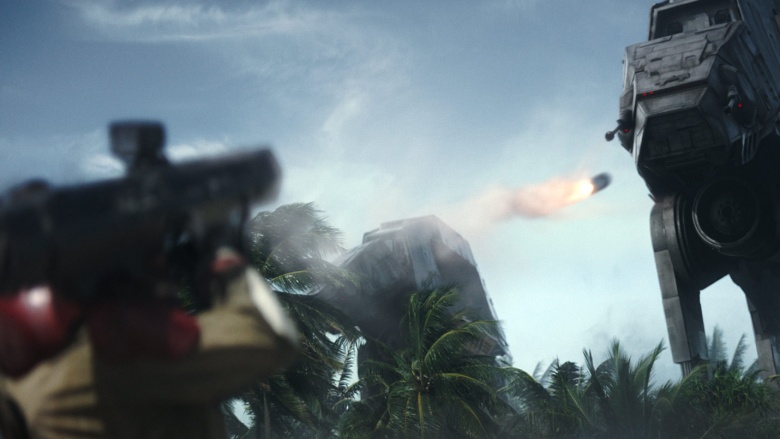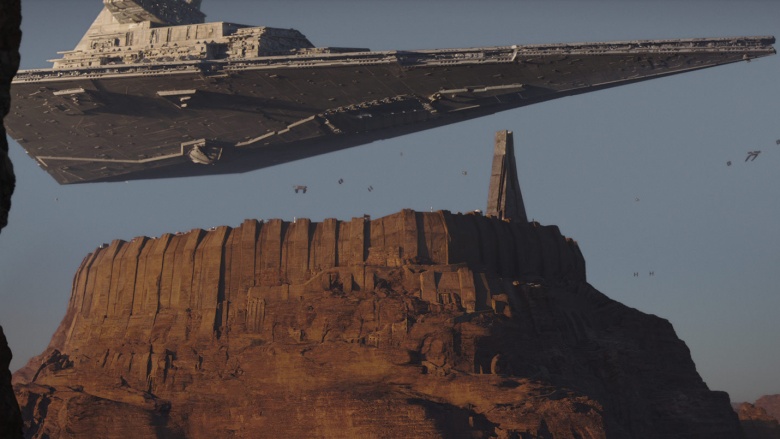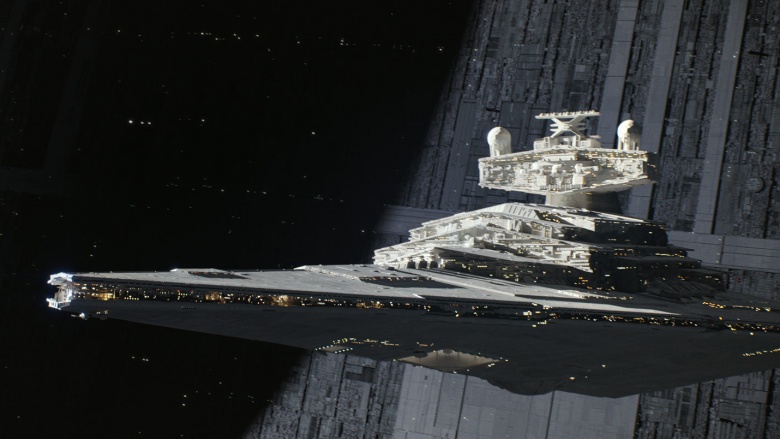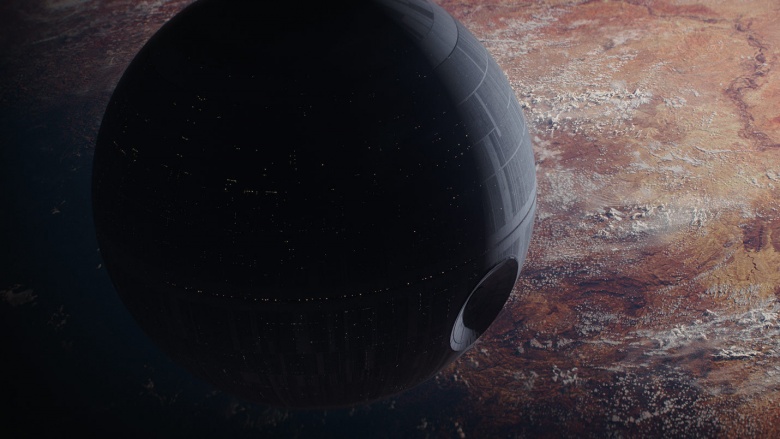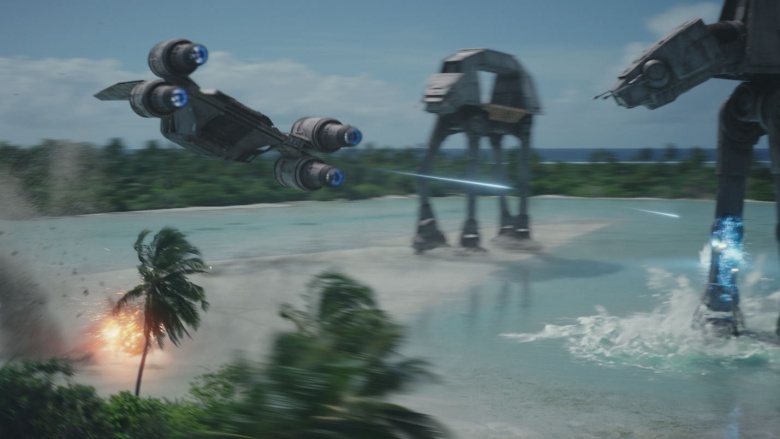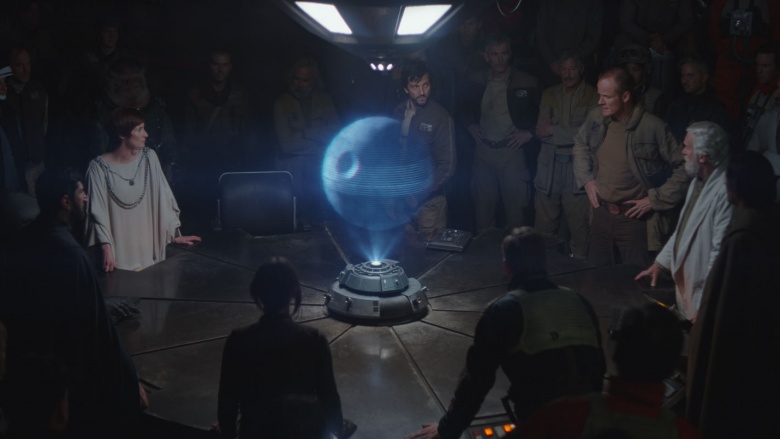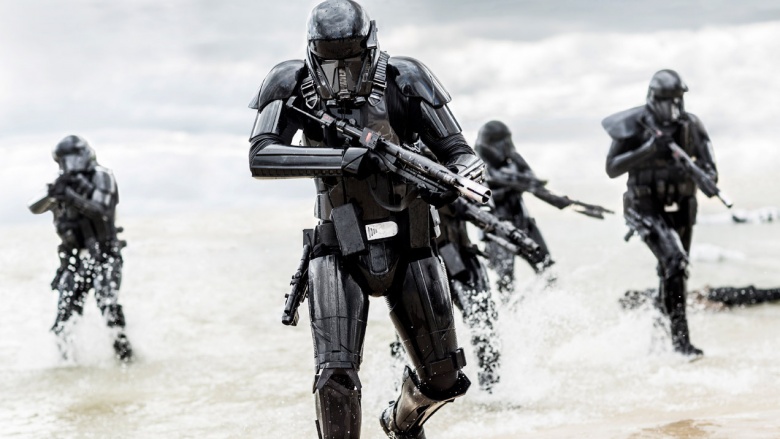What Critics Really Thought About Rogue One
Disney expands the Star Wars franchise again this week with the release of Rogue One: A Star Wars Story, a standalone installment that goes back to the period just before 1977's A New Hope to depict the Rebels' mission to steal the plans for the original Death Star. It features almost all new characters and takes a creative risk by sending the franchise in a more war-torn direction than ever before. Now the first reviews have finally arrived, so we can tell you what the critics are saying. Is Rogue One any good? Read on.
Rolling Stone
Peter Travers at Rolling Stone says the film lives and breathes in the down and dirty corners of a galaxy far, far away—while still providing just enough ties back to the original trilogy to feel like it's all in the same world. He also praises the cast of new characters who undertake the mission, as well as the action set pieces, writing, "Taking place just before the events of the first released Star Wars movie in 1977, this spin-off/prequel has the same primitive, lived-in, emotional, loopy, let's-put-on-a-show spirit that made us fall in love with the original trilogy."
The Hollywood Reporter
Todd McCarthy of The Hollywood Reporter argues that Rogue One feels like a war movie, a new angle that provides a fresh vibe for the decades-old franchise. This approach provides kinetic energy, McCarthy notes, which keeps the action hopping: "Rogue One definitely puts the war back into Star Wars. It may call itself rogue, but this first stand-alone feature in the series officially unconnected with any of the previous entries fits comfortably in the universe George Lucas birthed 40 years ago."
Deadline
Pete Hammond from Deadline has high praise for Rogue One, suggesting it's already a contender for the overall best of the franchise. From Michael Giacchino's original score (and its nods to John Williams' classic soundtrack) to the way the story weaves into what fans know and love, Hammond says it strikes a near-perfect balance. "Director Gareth Edwards, who revitalized the Godzilla franchise, has done the same here," argues Hammond, calling the end result "a rousing and wholly entertaining take that proves you don't have to go along with the recipe in order to serve up a satisfying meal for fans and non-fans alike."
Variety
Peter Debruge at Variety says Rogue One "perfectly" sets up the opening notes of Star Wars: A New Hope. He doesn't go too deep into spoilers, but notes Rogue One fills in one of A New Hope's biggest weaknesses: the fact that something as lumbering and deadly as the Death Star (it's right there in the name!) could actually have such an obvious, exploitable flaw. "[I]t it takes that blockbuster's biggest weakness—that a small one-man fighter can blow up a battlestation the size of a class-four moon—and actually turns this egregious design flaw into an asset," writes Debruge. "Now we know why the Death Star has an Achilles' heel and how that information fell into Princess Leia's hands."
USA Today
USA Today critic Brian Truitt is less enthusiastic than some of his peers, pointing out that said the film struggles to find its place in the Star Wars canon. Calling the franchise "a grand mythology of Skywalkers and smugglers, 'chosen ones' and weird cantina aliens," he argues, "In that way, Rogue One feels small in scale, even with its signature heroism and sci-fi action, and its main players mostly lack the charm that made Rey, Finn and Poe in last year's The Force Awakens—or Han, Luke and Leia back in the day—so special."
The Verge
Bryan Bishop at The Verge admits the film isn't perfect, sometimes shaking under the load of having to build its own narrative (instead of building on the sequels that come before). That stretches to the characters too—Bishop feels a few members of the ensemble remain one-dimensional by the end of the story (though there are certainly some standouts). While praising the visuals, Bishop notes that Rogue One struggles most when trying to just be a Star Wars movie: "The film soars when it abandons all pretense of being a space opera, and fully embraces the bombastic modern action movie that's at its core, giving it a unique identity that does indeed stand apart from other entries in the series."
Chicago Tribune
Michael Phillips at the Chicago Tribune touches on the myriad films Rogue One could be compared to—a list that runs from the Dirty Dozen to Guardians of the Galaxy and Blade Runner. He also praised its diverse ensemble, as well as the handheld-style shooting technique: "Deliberately, director Gareth Edwards' effort is rough around the edges, hectic in its cross-cutting but increasingly effective as kinetic cinema," he writes. "The battle scenes are shot in what production designer Neil Lamont calls 'docu-war film' style, heavy on the hand-held technique, with cinematographer Greig Fraser making use of some old-timey '77-era lenses."
Entertainment Weekly
Chris Nashawaty at Entertainment Weekly gives Rogue One a B+ rating, deeming it "every bit as satisfying" as The Force Awakens. Hinting that Darth Vader gets a few good scenes and an epic Force Choke, he also praises the introduction of Jyn, calling the character a "fierce," rallying," and "human" hero who's arguably even more inspirational than The Force Awakens' Rey. Nashawaty's biggest takeaway from Rogue One is that it's ultimately more of a heist film than anything: "This motley band of thieves and scoundrels has to nick some blueprints. It's Ocean's 11 in space," he argues. "And while the movie sags a bit in the middle (where it gets weighed down with exposition), the third-act heist is white-knuckle stuff."
Forbes
Scott Mendelson from Forbes jokes "this is the Star Wars Story you're looking for," arguing it's "absolutely better" than The Force Awakens—and a contender for the best Star Wars movie of all. Mendelson says the final product sometimes focuses on plot more than characters, but not enough to detract from a fantastic experience, and points out the tonal connections to the animated Star Wars shows—specifically their focus on new and different characters. "[I]t is rarely less than entertaining, with a rich visual vocabulary and a tone that mostly stands apart from its cinematic predecessors," writes Mendelson. "Ironically, at its very best, it mixes the battle-weary cynicism of Star Wars: The Clone Wars and the 'What difference can one person make?' desperation of Star Wars: Rebels."
The New York Times
A.O. Scott of The New York Times had a decidedly mixed reaction to the film, arguing the story itself is "mediocre," buoyed by a fantastic cast, and ultimately aims for grand ideas, but has trouble actually tackling them in a meaningful way. "You're left wanting both more and less," Scott argues. "There are too many characters, too much tactical and technical explanation, too much pseudo-political prattle. And at the same time, there isn't quite enough of the filial dynamic between Galen and Jyn, and not enough weight given to the ethical and strategic problems of rebellion."

